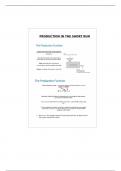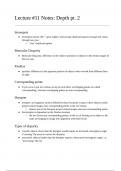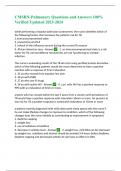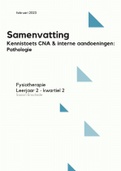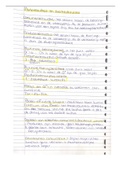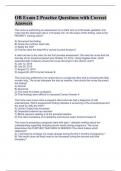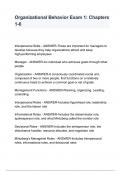College aantekeningen
MEBP Lecture 2 on public politics I ()
In this detailed summary you can find the notes of the second lecture of Managerial economics, business and politics: supply and demand for nonmarket action, the nature of political competition (free-riding and collective action), and strategy formulation
[Meer zien]





